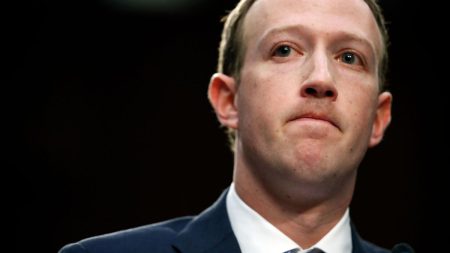Australia’s communications minister has proposed a groundbreaking legislative bill aiming to outright ban social media usage for minors aged 16 and under, reflecting the government’s broader commitment to enhancing online safety. In her address to parliament, Communications Minister Michelle Rowland highlighted alarming figures related to the exposure of young Australians to harmful online content. Almost two-thirds of youths aged 14 to 17 reported encountering extreme material, including drug promotion, self-harm, and violence, while one-quarter were confronted with content encouraging unhealthy eating habits. The legislation is thus positioned to regulate “age-restricted social media platforms,” which encompasses popular applications like TikTok, Facebook, and Instagram. The minister emphasized that these platforms would be obligated to implement necessary measures to prevent minors from creating accounts, thereby challenging social media companies to enhance their accountability and practices regarding user safety.
The proposed legislation marks a significant shift in how Australia and potentially other nations envision protecting children online. Research conducted by Australia’s independent online safety regulator found that nearly half of children aged 8 to 12 are already using short-form video apps like Snapchat and TikTok. The majority of caregivers identified online safety as a major hurdle in parenting, emphasizing the urgent need for reform. Furthermore, Prime Minister Anthony Albanese praised the bill as a landmark initiative, stressing that it sends a strong message to social media firms about improving their platforms and safeguarding younger users. Importantly, the bill includes a timeline wherein the minimum age limit will be implemented at least a year after its passage, allowing social media companies adequate time to prepare their systems to comply with the new regulations.
Globally, other nations are increasingly exploring measures to fortify online protections for minors. In the United Kingdom, the pending implementation of the Online Safety Act mandates that social media firms must actively enforce age limits, moving beyond mere declaration of age restrictions in their terms of service. The UK government asserts that it is no longer sufficient for social media platforms to claim age restrictions without implementing protective measures. Similarly, France passed legislation requiring platforms to obtain parental consent before allowing minors under 15 to create accounts, although technical issues have delayed its full implementation. French President Emmanuel Macron has additionally advocated for establishing a broader European digital age of majority, aiming to create uniform standards for youth online engagement.
Norway is also following suit, indicating intentions to establish a minimum age of 15 for minors to consent to data processing by social media platforms. The Norwegian government is actively working on specifics for implementing such an age limit, reinforcing the growing consensus among European nations regarding the urgent necessity of regulating youth interactions with social media. Notably, many major social media platforms, including Facebook, Snapchat, and TikTok, traditionally impose a baseline age of 13 for account creation, yet the effectiveness of these restrictions in ensuring safety remains contentious. Instagram has further announced recent changes, introducing “teen accounts” that specifically cater to users under 18, marking a trend towards more age-appropriate features for minors.
In Europe, the regulatory landscape continues to evolve with the General Data Protection Regulation (GDPR), which mandates that platforms obtain parental consent before processing personal data of users under 16. This regulation reinforces a collective commitment to protecting younger individuals in the digital age, while still allowing individual states to determine lower age thresholds, provided they don’t drop below the age of 13. Concurrently, the Digital Services Act (DSA) proposes that online platforms with significant user bases—specifically those exceeding 45 million monthly users in the EU—are obligated to identify and evaluate potential risks associated with their services for children and young people. These regulatory frameworks aim to create safer online environments and empower parents and guardians to make informed decisions regarding their children’s digital interactions.
As countries worldwide mobilize toward bolstering online protections for minors, the potential ripple effects from Australia’s proposed legislation could further inspire similar initiatives elsewhere. The shift towards enforceable age limits and proactive content regulation indicates a growing awareness of the digital landscape’s evolving risks and the need for a comprehensive framework to address them. While challenges remain in effectively implementing these regulations and ensuring compliance, there is increasing recognition of the role of social media companies in safeguarding vulnerable users. Platforms will likely face heightened scrutiny and expectations to prioritize user safety, thereby transforming the way they operate in relation to young audiences.
In conclusion, the momentum gained from Australia’s legislative initiative reflects broader global trends prioritizing the safety and well-being of minors in their online experiences. As more nations consider and implement protective measures against potentially harmful social media influences, the dialogue around responsible content management and age restrictions will continue to gain significance. As parents, caregivers, and policymakers advocate for enhanced protections, the responsibility lies not only with social media companies but also with society as a whole to create a safer, more nurturing digital environment for future generations. The results of these ongoing discussions and decisions will ultimately shape the landscape of youth social media engagement in the years to come.














